Taking your dog to the veterinarian is a crucial part of providing proper care, both preventively and in the event of an emergency.
When you bring a healthy dog to their annual veterinary appointment, you may be unsure why the appointment is necessary. Firstly, let me assure you that it is necessary to help your dog remain as healthy as he or she seems.
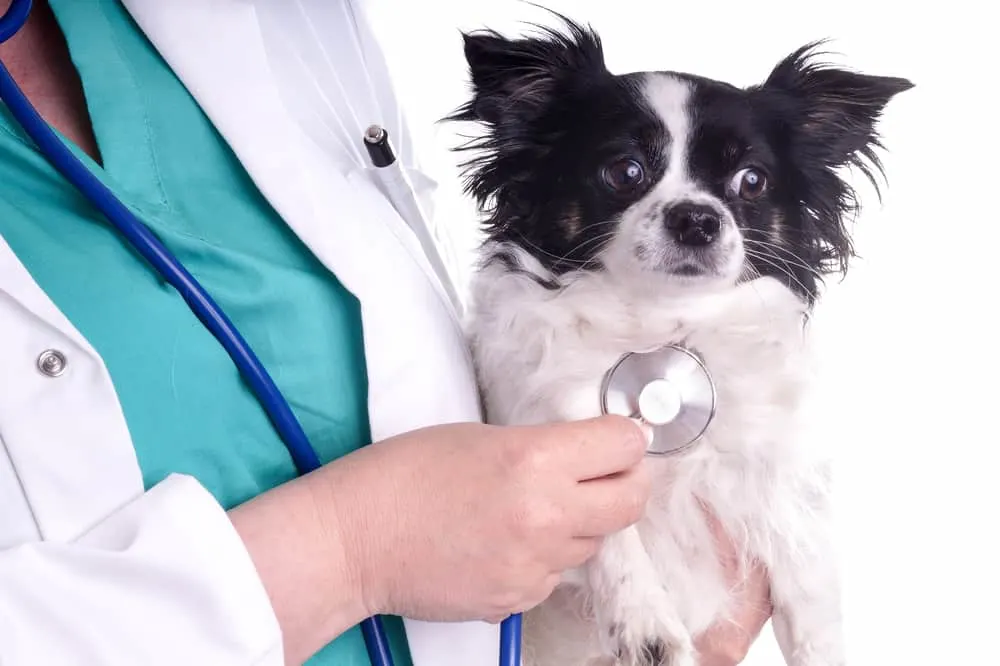
This article will give you guidance on why it is important and what to ask your dog’s veterinarian:
6 Questions to Ask Your Dog’s Veterinarian
Keep these 6 questions in mind at your dog’s next veterinary appointment:
What shots does my dog need?
Depending upon where you reside and your lifestyle, your dog’s veterinarian may recommend different vaccines.
For example, many areas require dogs to receive a rabies vaccination regardless of their lifestyle. However, if a dog spends time with other dogs, such as attending doggy daycare, his or her veterinarian may recommend that they receive additional vaccinations.
My tip is if your dog is small (like a chihuahua) don’t have more than one vaccine at a time. Wait a few weeks before the next vaccine so as not to overload your small dog’s body. Small dogs often have a hard time with vaccines but they are a necessary evil, so make them as safe as possible for your dog.
I personally give my dog a dose of Benadryl (1mg per pound of body weight) right before each vaccine to lessen the chance of an allergic reaction. But check with your vet to make sure it’s ok for your dog to have Benadryl before giving it to them.
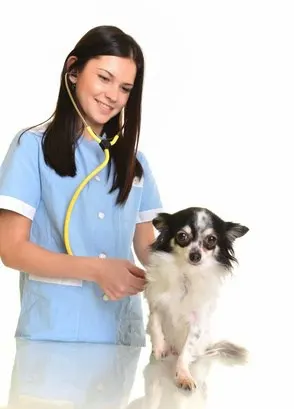
Do you have a specific question or concern?
Most pet parents will encounter something that they want to ensure is healthy or something that they do not understand.
For example, you might notice a mark on your dog’s belly that you cannot tell is a pattern of their skin or a rash. You may wonder if a certain toy is considered safe or unsafe, etc.
I recommend using the notepad feature of your phone to write down any specific questions that you have to help you remember to get answers.
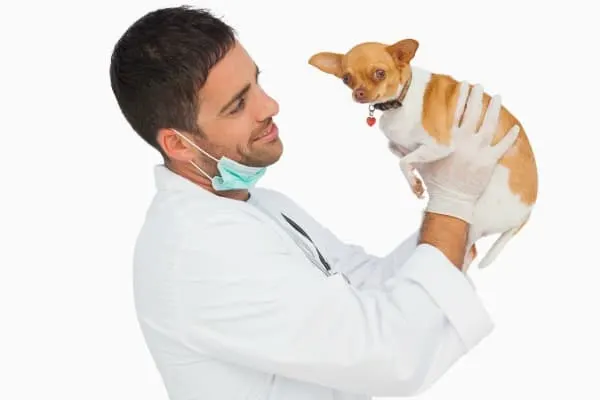
What is the best food to feed my dog?
The number of dog foods available on the market can be overwhelming! Have you read the label of your dog’s food? The ingredients in some dog foods are questionable at best. If you do not understand what the ingredients listed on the label of your dog’s food are, it is time to reevaluate feeding your dog that food.
Be sure to ask your veterinarian if they would recommend the food your dog is eating, and if not, be sure to ask for what foods they do recommend.
Many of us prefer to cook for our dogs to ensure the food they are getting is safe. Be sure to ask your vet for a healthy recipe for home-cooked dog food or show your recipe to the vet and ask if it is a good, nutritious option for your dog.
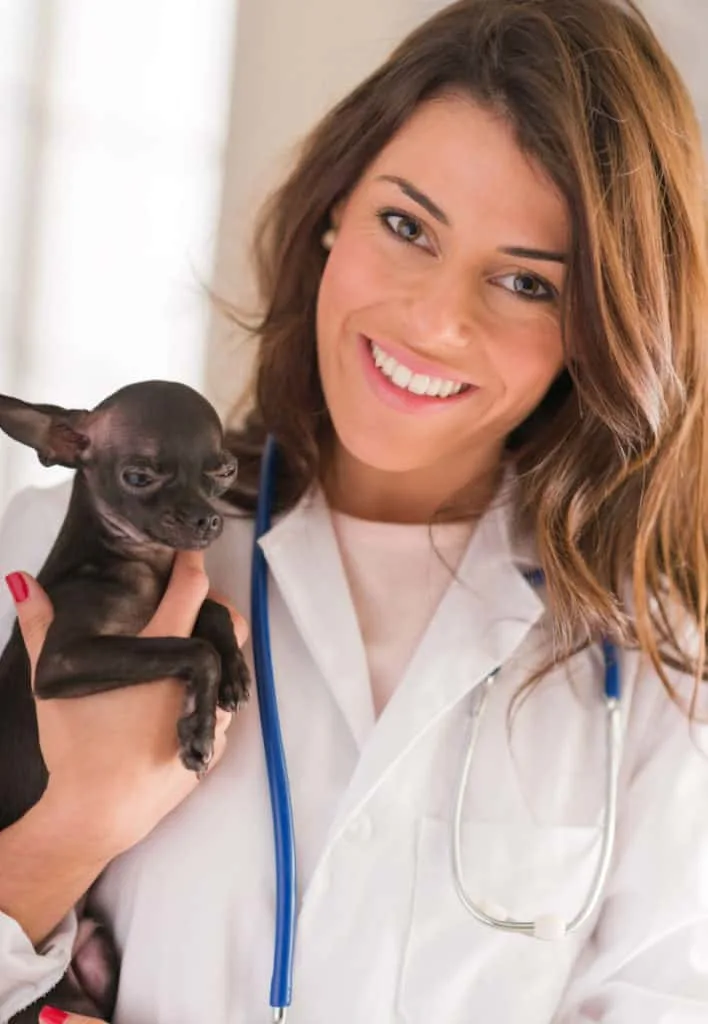
Does my dog have heartworm, parasites, or tick-borne illnesses?
Veterinarians will always recommend that your dog be tested for parasites and tick-borne illnesses. Never assume that your dog does not need to be tested for these conditions because they spend most of their time indoors!
Even if your dog spends most of their time inside, eating the wrong thing when you were not looking on a short walk could allow a parasite into their system. Ticks can be found in suburban front yards or city parks, not just in the country or in forests.
Even if you believe that your dog is at a low risk for contracting parasites, it is important to have a fecal test performed annually to keep your family healthy. Some parasites may be transmitted to humans; the highest risk humans are young children and seniors.
This is accomplished via a stool sample and a blood draw. Your dog’s stool is tested for worms and parasites and your dog’s blood is tested for heartworm and tick-borne illnesses. The blood test is formally referred to as a 4DX test and only requires a small blood draw to be completed.
Most veterinarians recommend all dogs be tested for these conditions annually, or after a tick bite if certain symptoms are present.
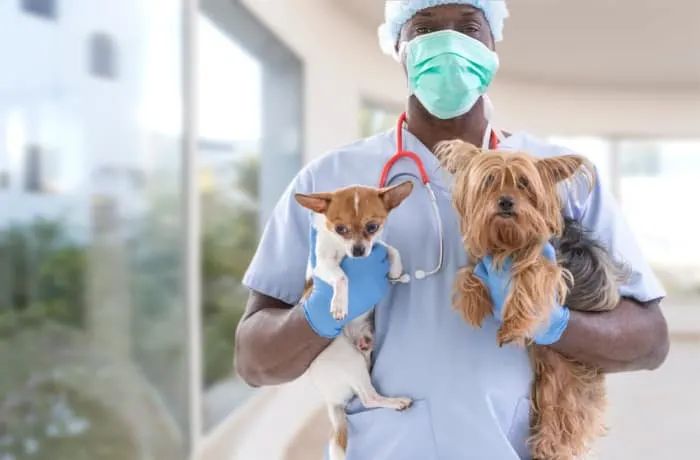
What flea and tick medicine works best?
If you have never experienced fleas in your home, you will want to keep it that way, and a simple monthly preventative can help you do that.
Every dog should be given a flea and tick preventative monthly, even if they live indoors and spend most of their time there. This is important not just for your dog’s health, but for yours and your family’s as well.
Most veterinarians have a preferred product and will be able to provide a recommendation to you. Some even offer coupons or specials on these products.
Be sure to obtain these products from a veterinarian rather than a pet store; some of the manufacturers offer a guarantee, but only if purchased at a vet office, not at a store.
These monthly preventatives have come a long way in recent years; previously there were only greasy products available that were messy and inconvenient. Now, oral medications are available which are much easier to use, and less messy.
Some pet parents choose to use flea collars but I personally would never use them on my dogs. It is critical to remember that your dog must wear them constantly for them to be effective, and it is not safe to leave a dog unsupervised in the belt buckle style collar, which is the style of most flea collars.
A safety feature such as a break-free collar is the only type of collar that a dog should be unsupervised wearing to protect them from strangulation.
Keep in mind that some monthly preventatives cannot be used in homes that cats reside in as they can be toxic to cats, which further supports veterinary advice being crucial.
And some people prefer natural alternatives as they don’t like using chemicals and that’s completely understandable. Just let your vet know what you are doing.
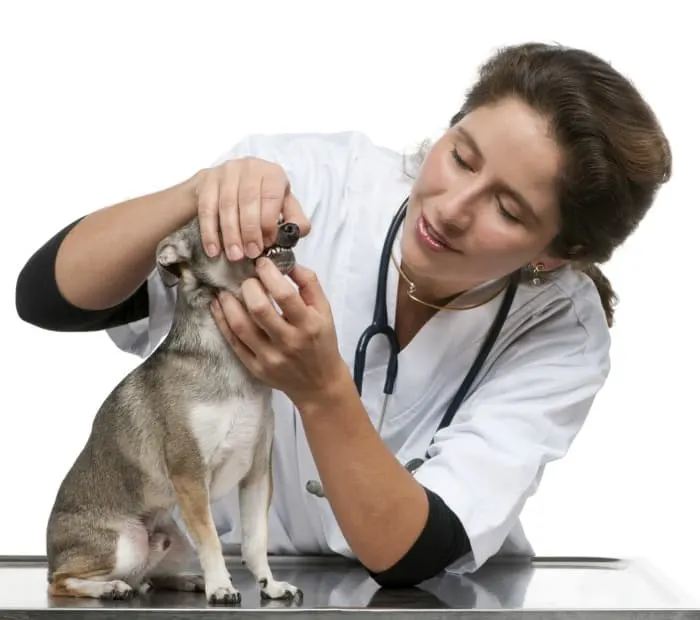
Does my dog need a dental cleaning?
Anyone who has loved a dog will tell you that they never live long enough. If you want to give your dog the good health they need to live a longer life, and support a better quality of life overall, your dog’s teeth should not be overlooked.
All dogs should receive a professional dental cleaning as recommended by their veterinarian to support their overall health and quality of life.
Your veterinarian will tell you that you should try to brush your dog’s teeth at home. If you need guidance on how to do this, your veterinarian and their staff should be able to assist you.
We do have a low-cost product with a video that shows you how to brush your dog’s teeth if you are interested here.
However, some dogs will not allow you to brush their teeth. In these circumstances, a professional veterinary dental cleaning becomes more critical. Your veterinarian may be able to perform a cleaning in their office, or they may refer you to a canine dentist.
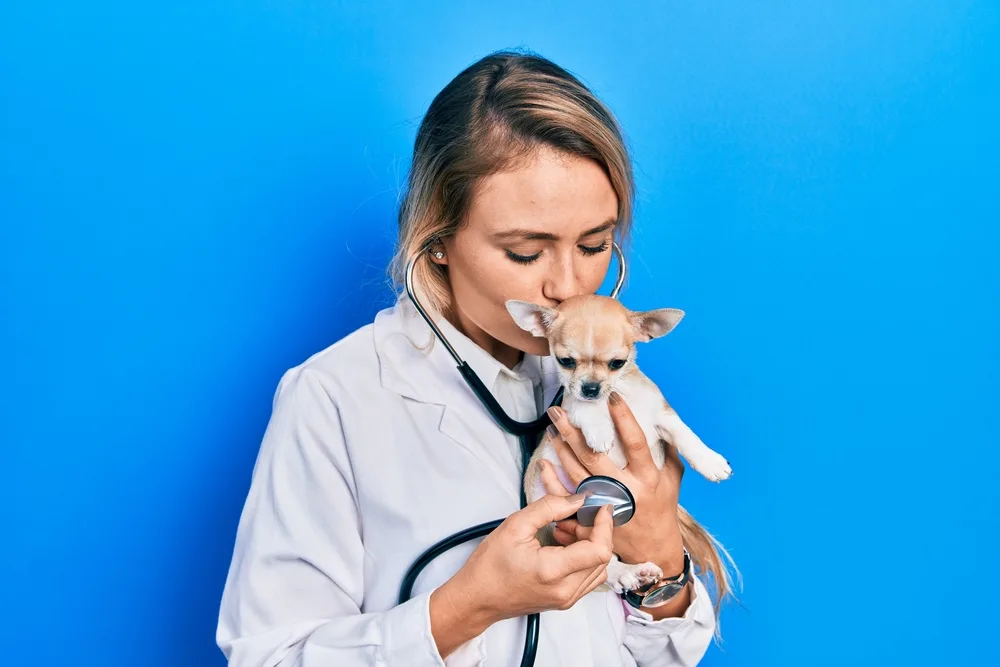
Conclusion
A trusted veterinarian is a crucial part of your dog’s care plan. Preventive veterinary care can contribute to a longer life span and a better quality of life. By keeping these 6 questions in mind at your dog’s next veterinary appointment, you can be prepared to be an advocate for his or her health and well-being.


Cathy Bendzunas
Pet Blogger

Esther
Wednesday 27th of September 2023
When I bathe my chis, I rinse them with ACV; fleas and ticks steer clear. Thanks for your advice
Cathy Bendzunas
Wednesday 27th of September 2023
You are very welcome Esther. Good advice about the apple cider vinegar.
Dorothy Whittam
Sunday 4th of September 2022
Dear Kathy, I think about you often and hope you will overcome this diagnosis. What a wonderful bunch of helpful articles. I read everyone! Thank you and I am praying for you.
Cathy
Sunday 4th of September 2022
Thank you Dorothy! That means a lot!
Francesca
Saturday 3rd of September 2022
My dog eats Farmer's Dog. He was starting to have seizures. First I took him off SERESTO. Then I beginning giving him2 oz. of CBD tea a day. They stopped for awhile...but then while we were in my GP Office he had another. Petite Mall.But not as bad. So I read som more research.Then I started him on FARMER'S DOG. NOMORE DRY FOOD. He is 11 years old. I brush his teeth& have been grooming him since he was 6 months. He is a rescue. My Veterinarian said he is the healthiest 11 year old deerface Chihuahua she know. His name is Daniel. He has been trainer to be my Service dog when he was 6 years old.I have PTSD,stress & anxiety from Military sexual trauma. He is my best companion! He doesn't bully me & given me love no matter what is going on. I love him so much! When he was 2 I taught him how to pee in the toilette when bad weather is outside.
Cathy
Saturday 3rd of September 2022
That's amazing Francesca! We have used The Farmers Dog before and highly recommend it. I'm curious. How does a small dog like a chihuahua get up on a toilet to pee?
Sharon
Saturday 3rd of September 2022
I'm so glad I found your website. I have learned so much about my beautiful little Chihuahua. Your articles are fantastic. Thank you so very much. I hope and pray you are doing well. I found out prayers do work a few years ago when I wound up on a vent with little chance to make it. But here I am so I'm keeping you in my prayers so all goes well for you.
Cathy
Saturday 3rd of September 2022
Thank you Sharon. That gives me hope.
Debbie DiDiego
Saturday 20th of August 2022
Cathy, I love your newsletters and my Star has been my savior, she is my service dog for PTSD and Diabetes. I am retiring her because she has a thyroid problem, my Veterinary is always on top of what Star needs, you are so right about their teeth I brush Star's daily started when she was a pup. thank you for all you do. Debbie
Cathy
Saturday 20th of August 2022
That's great that you have such an awesome vet!